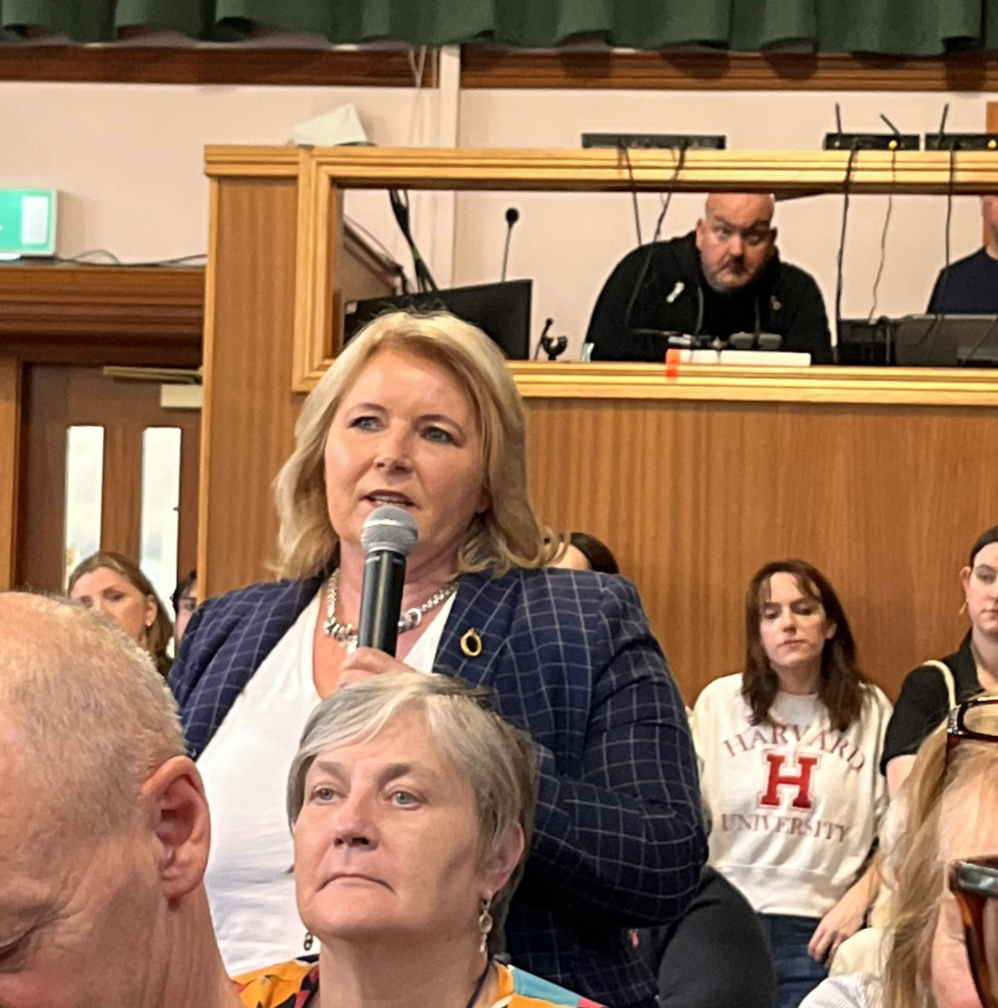THE aspiration for a New Ireland – a reunited Ireland – is a legitimate one, and a noble one. That is not just my own politics, but is based in international treaty. Our peace agreement provides for that aspiration and gives a roadmap to how it might occur.
Unionism knows this and marked a significant achievement in the Good Friday/Belfast Agreement by enshrining a local majority in that provision. The state that had been founded by sectarian headcount and was perpetuated by the constant threat and use of violence and murder had secured its short term future. Partition was given constitutional status on our island.
Pat Cullen, General Secretary of the Royal College of Nursing, thanks @jeremycorbyn for his support during the recent nursing strike - “Nearly every picket I visited you were on it - or you’d only just left it on your bike!” 🪧 pic.twitter.com/H9aZpEj0XI
— Joe Dwyer (@JoeEDwyer) August 3, 2023
But that is changing demographically and politically. As that happens there is debate on the sensibleness of the perpetuation of partition. Live 1.5 years less under Westminster administration? Less money in our pockets or our children with significantly worse educational achievement? Two health systems operating separately with significant challenges when an all-island approach could make for better health outcomes? They are not only legitimate questions, they are necessary and responsible.
When Pat Cullen, Chief Executive of the Royal College of Nursing, the nurses’ trade union, spoke in St Mary’s, she articulated what we are all thinking – the future of local health care is more likely to be better delivered on an all-island basis than at the mercy of Westminster cuts and chaos. The woman who stands in picket lines in the snow with her nursing brothers and sisters, who has been the voice of reason on safety in our health system, who saw nurses through the pandemic with much more than clapping, gave us an option to think about in the context of workers’ rights.
Her reward for this was the Ulster Unionist Party writing to her union asking what right she has to engage in such contentious talk and some elements of the media treating Pat Cullen as if she was leading a seditious rebellion. Of course, those amplifying these inane moments of insecurity by insecure Ulster need to have a long hard look at themselves.
“I believe the only hope for the NHS is reunification.” @patcullen9 @FeileBelfast @IrelandsFuture 👏🏼👏🏼👏🏼👏🏼 pic.twitter.com/eCEtl85vvM
— Senator Niall Ó Donnghaile 🇮🇪🇵🇸 (@NiallSF) August 4, 2023
Here’s the thing. British sovereignty is the status quo. Not challenging the current constitutional arrangement is to consent to its existence and administration. It is by default picking a side. But that is rarely thought about or challenged. Even framing it like that will raise the hackles of some. But thinking about, talking about and – God forbid – espousing change in the constitution is deemed as “other”. This has meant that prominent thinkers such as Professor Colin Harvey have had their employment status challenged, and now Pat Cullen is subject to similar treatment. It appears Ulster’s unionism and loyalism are not only affronted by the prospect of change, but also by professionals in places they thought they once owned and ran, who can no longer be threatened or controlled.
As endorsed by the Irish President’s appointment of Colin Harvey to the Irish Human Rights Commission this summer, the legitimacy of the arguments are not for debate, only their substance. And that debate will be the conversation of the moment for the time ahead, will only grow and everyone on every street corner will be engaged in it. Fear and threat to that debate must and will be dismissed for what it is – the last insecure gasps of those yet to realise their future lies in a reunited island.








